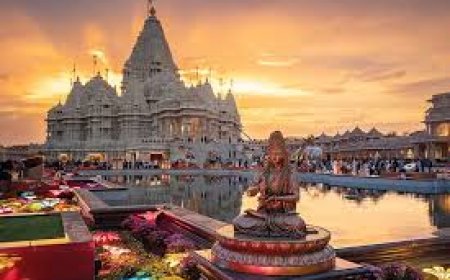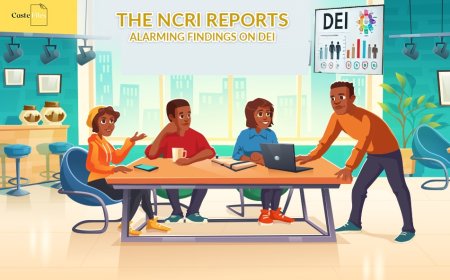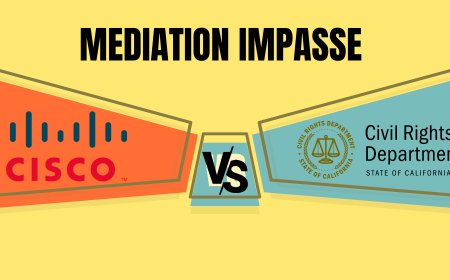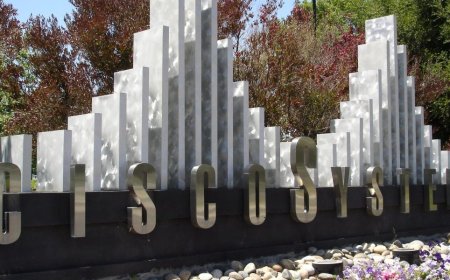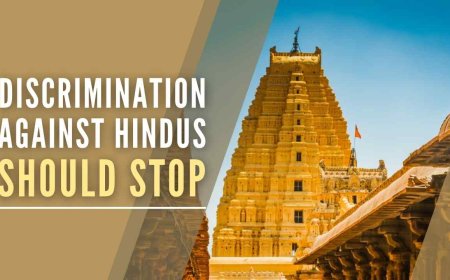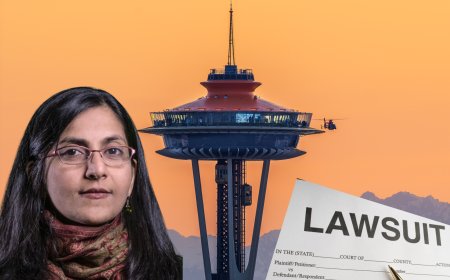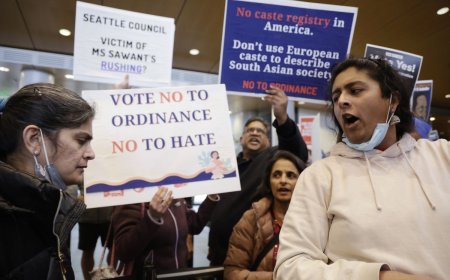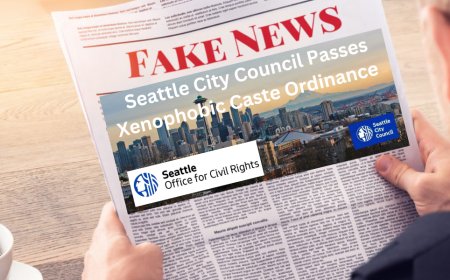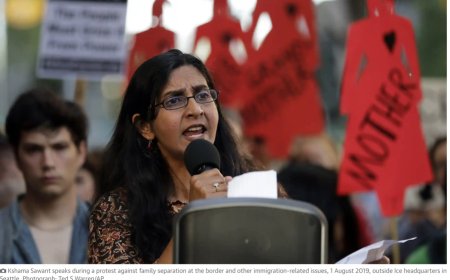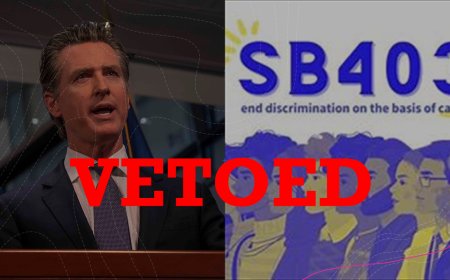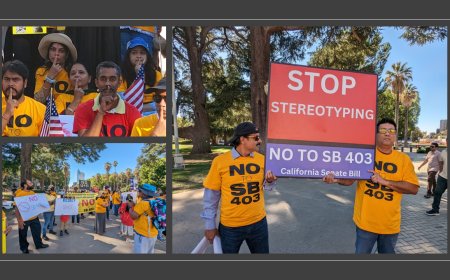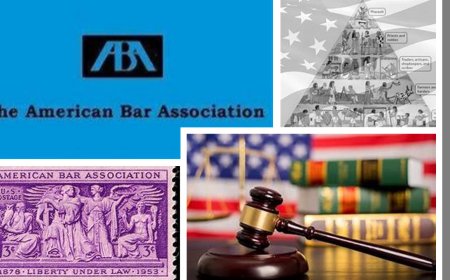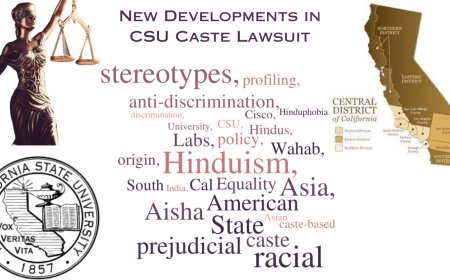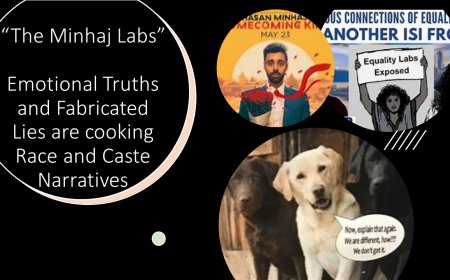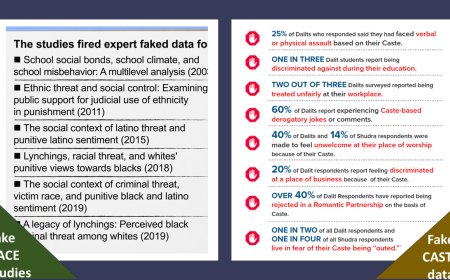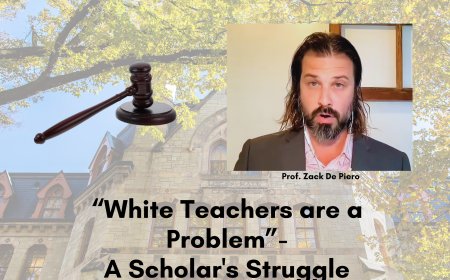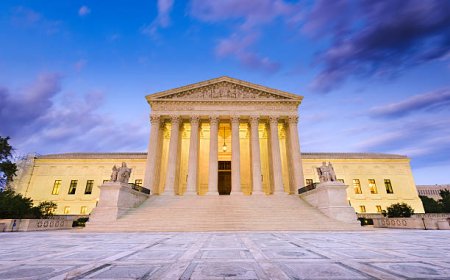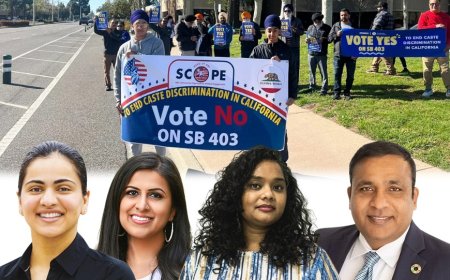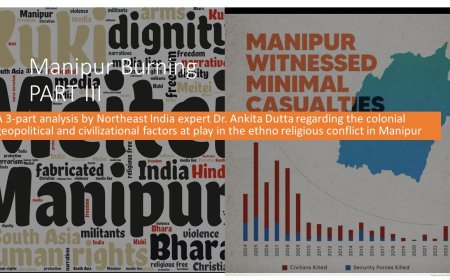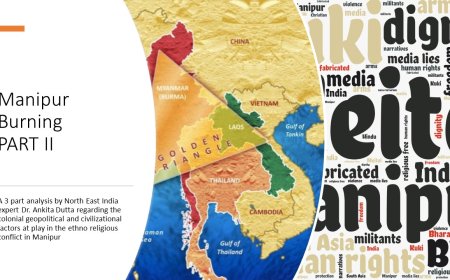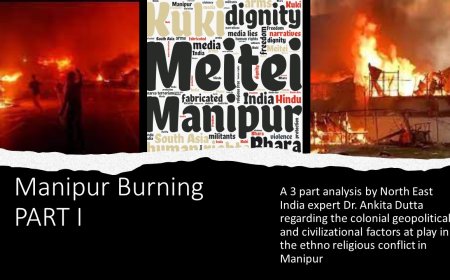Race, Caste and Affirmative Action: Examining Impact of SCOTUS Ruling on Merit in Academic Admissions
SCOTUS ruling challenges affirmative action, highlighting the impact on race, caste, and merit in academic admissions while raising concerns about discriminatory practices and the need for individual-based treatment

By Abhijit Bagal
Diversity, Equity and Inclusion have taken precedence over merit, performance and efficiency, in modern times and the recent judgement by SCOTUS overturns some of that rhetoric. Caste Files Legal Analyst, Abhijit Bagal, takes a deep dive into the affirmative action around the academic admission process offering the simple premise of democracy that “people must be treated based on their experiences as an individual, not based on their race or caste”. The author looks at the charged atmosphere around CA SB403 and offers that “just like the unlawful Harvard admission policy, SB-403 will fail an illicit motive challenge in court. Similarly, the discriminatory Seattle caste law will ultimately meet the same fate in court”.
Anti-Semitic admission policy at Stanford University
It was well known throughout the Jewish community in the 1950s that Stanford University discriminated against Jewish applicants despite the university routinely denying biased admissions practices. On October 12, 2022, Stanford President Marc Tessier-Lavigne apologized on behalf of the university and pledged action on recommendations in a task force report confirming Stanford limited the admission of Jewish students in the 1950s. The task force reported that Stanford administrators took steps to limit admissions of Jewish students in the 1950s and “regularly misled parents and friends of applicants, alumni, outside investigators, and trustees” who asked about such admissions practices. Seventy years later, the university is finally admitting that it purposefully limited the admission of Jewish students after uncovering documents and data proving explicit anti-Semitic policies at Stanford at the time.
Anti-Asian American policy at Harvard University
Harvard University started race based affirmative action admissions a few decades back. According to news reports, an internal unpublished Harvard analysis in 2013 indicated that 43% of admissions would have been Asians if admission had been based strictly on academic considerations alone, things like high school performance and scores on the SAT examination. In fact, only about one-half that proportion of Asians were admitted. At Harvard University skin coloration is important, and that dark is “good” (unless the individual is of Asian origin, such as from India), while white is, if not “bad,” certainly less desirable. The suggestion that on average Asians are highly deficient in personal characteristics relative to others, especially blacks and Latinos but also even whites, is seemingly indefensible on any objective grounds.
The Tug of war between Racial Diversity and Equal Protection Clause
On June 29, 2023, the United States Supreme Court ruled that private and public colleges and universities may not consider race as a factor in admissions, striking down the precedent set in the landmark case Grutter v Bollinger (2003). In the majority opinion, Chief Justice John Roberts wrote that the Equal Protection Clause of the 14th Amendment applies “without regard to any difference of race, of color, or of nationality” and therefore must apply to every person. “For “[t]he guarantee of equal protection cannot mean one thing when applied to one individual and something else when applied to a person of another color.” The ruling will likely have repercussions beyond higher education institutions, extending to elementary, middle and high schools as well as workplaces and more as it opens a door for challenges to racial diversity programs.
Race, Caste and the “privileged” Asian Americans
According to New York Times Opinion columnist, David French, who also happens to be a lawyer, the evidence is overwhelming that Harvard actively discriminated against Asian applicants. As Chief Justice John Roberts notes in his majority opinion, a Black student in the fourth-lowest academic decile had a higher chance of admission to Harvard than an Asian student in the top decile. This discrimination was not unique to Harvard. As Chief Justice Roberts makes clear, the University of North Carolina — which was a defendant in a separate case about its admissions process — also imposed far tougher admission standards on Asian students. Compounding the injustice, Asian Americans were already historically marginalized. As Justice Clarence Thomas details in his concurrence, “Asian Americans can hardly be described as the beneficiaries of historical racial advantages.”
As if these facts were not bad enough, Harvard specifically rejected alternative, race-blind formulations that could have achieved comparable student diversity. As Justice Neil Gorsuch notes in his concurrence, the plaintiffs in the case submitted evidence that “Harvard could nearly replicate the current racial composition of its student body without resorting to race-based practices,” if it gave socioeconomically disadvantaged students just half the advantage it gave recruited athletes and if it eliminated preferences for “the children of donors, alumni, and faculty.” These advantages “undoubtedly benefit white and wealthy applicants the most,” Justice Gorsuch writes, and perpetuate a system in which Harvard both favored certain classes of predominantly white applicants and discriminated against Asians, a historically disadvantaged minority. These were dreadful facts to defend in court.
The US Supreme Court's two Black justices clashed over affirmative action ruling and brought in the infamous “c” word—caste. Supreme Court Justice Clarence Thomas dismantled his colleague Justice Ketanji Brown Jackson's "race-infused world view."
In his 58-page concurrence, Thomas said Jackson's connection between racial groups and "levels of health, wealth, and well-being" was locking "blacks into a seemingly perpetual inferior caste." “So, Justice Jackson supplies the link herself: the legacy of slavery and the nature of inherited wealth. This, she claims, locks blacks into a seemingly perpetual inferior caste," Thomas wrote. "Such a view is irrational; it is an insult to individual achievement and cancerous to young minds seeking to push through barriers, rather than consign themselves to permanent victimhood." Affirmative Action has created an alternate caste society based on who gets into what exclusive colleges. Interestingly, Jackson earned her undergraduate degree from Harvard University in 1992. She worked at Time magazine for a year before attending Harvard Law School, where she was supervising editor of the Harvard Law Review.
Academics have been relying upon the idea that race relations are like caste relations. Recent efforts by Social Justice activists to link caste and race in order to make a common platform against discrimination at international fora have reached both epic and absurd proportions. Hindu Americans are branded as "White Adjacent" and accused of using their "Caste Privilege" while overlooking their grit, determination, hard work, and two factors in the rise of Hindu Americans - education and family. Unscrupulous politicians are now using caste as the classic dog whistle to attack Hindu Americans.
Edward J. Blum, the founder of Students for Fair Admission, celebrated his group’s success in the blockbuster ruling. The group had argued before the court that Harvard’s race-conscious admissions policy violated Title VI of the 1964 Civil Rights Act, which bars discrimination based on race, color or national origin. Mr. Blum called the Supreme Court decision "the beginning of the restoration of the colorblind legal covenant that binds together our multi-racial, multi-ethnic nation". "These discriminatory admission practices undermined the integrity of our country’s civil rights laws," he said.
Yukong Zhao, president of the Asian American Coalition for Education, told the BBC he welcomed the ruling. His group argued that affirmative action had negatively affected Asian American students' odds of enrolment at elite schools. "This decision will preserve meritocracy, which is the bedrock of the American dream.," Mr. Zhao said outside the court, reflecting the popular view that universities could not have an open-ended timeline for addressing past discrimination that Harvard and the University of North Carolina used to justify their policies as unfocused, discriminatory and tied to racial stereotypes.
The lexicon of Caste and profiling of Hindu Americans
In conclusion, this author, who lives in North Carolina, echoes the sentiments of Justice Thomas that adding caste to the racial cauldron will create a new form of discrimination causing most Hindu/Indian/South Asian Americans to suffer. "Though Justice Jackson seems to think that her race-based theory can somehow benefit everyone, it is an immutable fact that ‘every time the government uses racial criteria to ‘bring the races together,’ someone gets excluded, and the person excluded suffers an injury solely because of his other race,'" Justice Thomas wrote. To sum it up, people must be treated based on their experiences as an individual, not based on their race or caste. Paraphrasing Justice Thomas’s examples of acceptable preferences: “If an individual has fewer financial means (because of generational inheritance or otherwise), then surely a city or state government may take that into account. If an individual has medical struggles or a family member with medical concerns, a university may consider that too. What governments and universities cannot do is use the individual’s caste as a heuristic.”
Just like race, using caste to racially profile Hindu Americans violates the equal protection clause of the 14th Amendment and is prohibited under the U.S. Constitution. Wrongly tying caste to Hindu beliefs and practices undermines the goal to eliminate all forms of discrimination, violates the First Amendment rights of all Hindu Americans, and can only lead to a denial of due process and equal protection to Americans based on their religious affiliation and national origin. The Cisco lawsuit dismissal demonstrates how two Hindu Americans were subjected to a brutal witch hunt for three years without any factual data or evidence of any alleged caste discrimination. Considering the Supreme Court decision making Affirmative Action Unconstitutional, California Caste Bill SB-403 must be withdrawn immediately to prevent any further harm and wastage of taxpayer dollars. Just like the unlawful Harvard admission policy, SB-403 will fail an illicit motive challenge in court. Similarly, the discriminatory Seattle caste law will ultimately meet the same fate in court.
Support the cause of justice and equality by donating to Caste Files, empowering voices against discrimination and fostering change. Donate now at https://castefiles.com/donate

